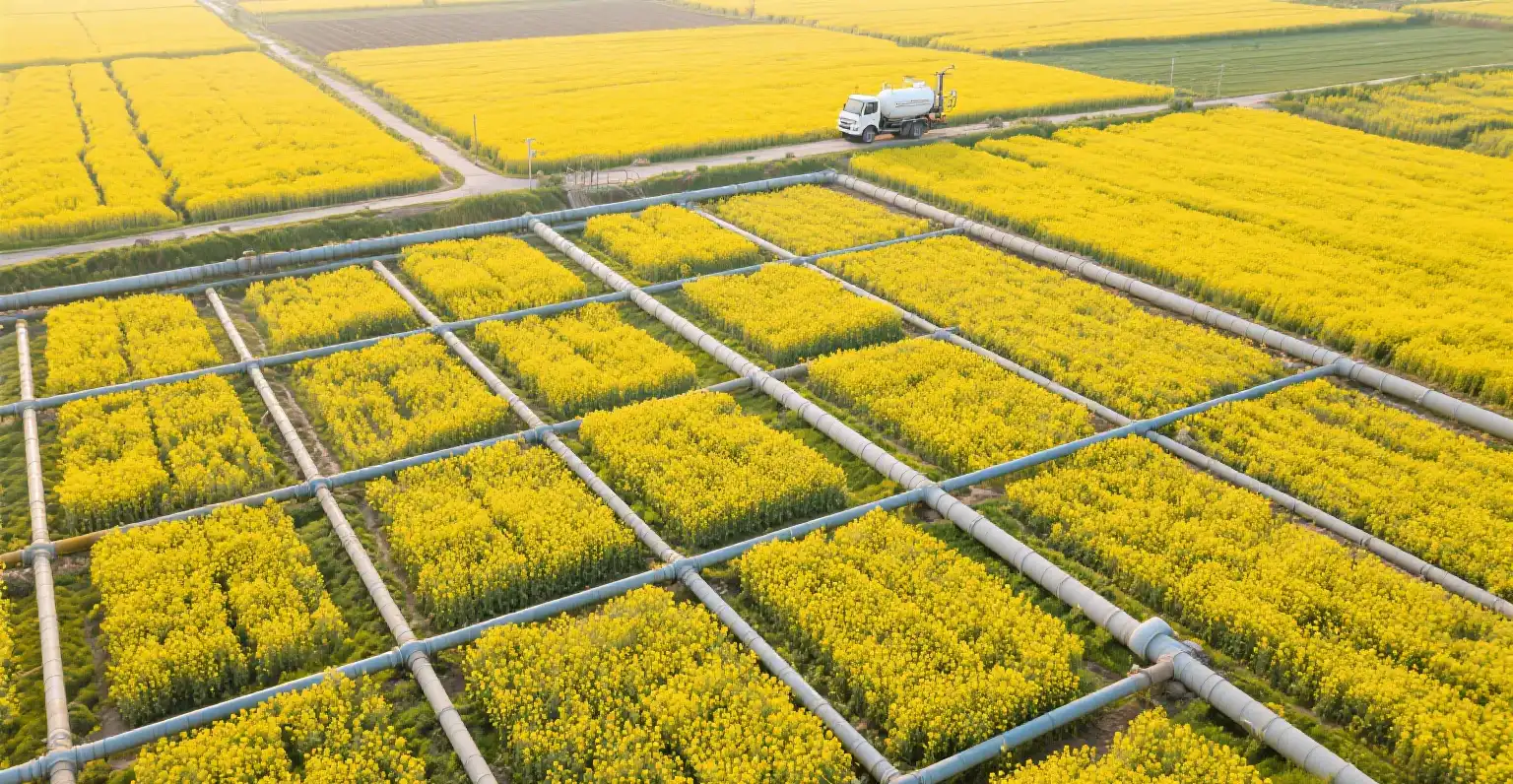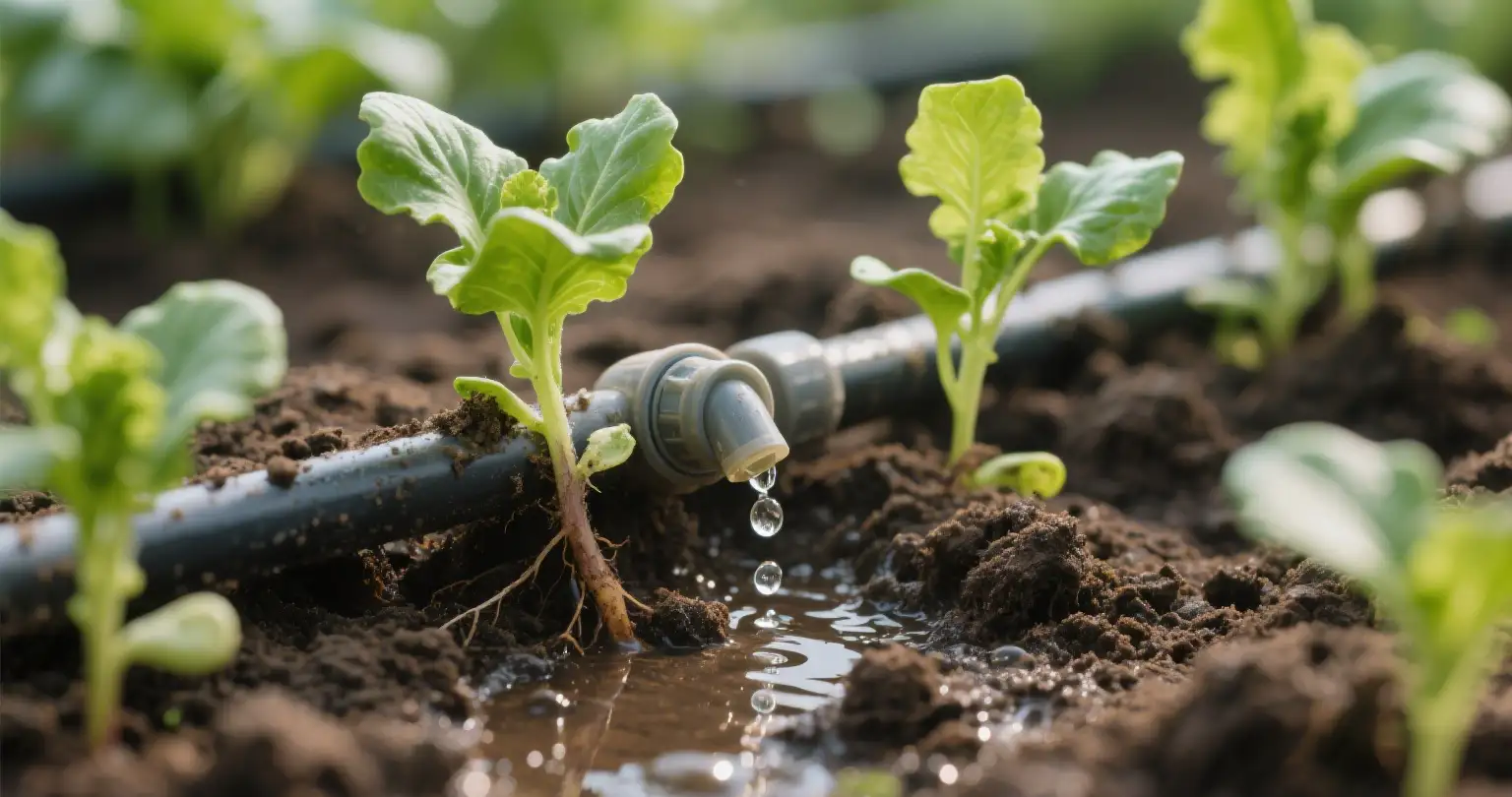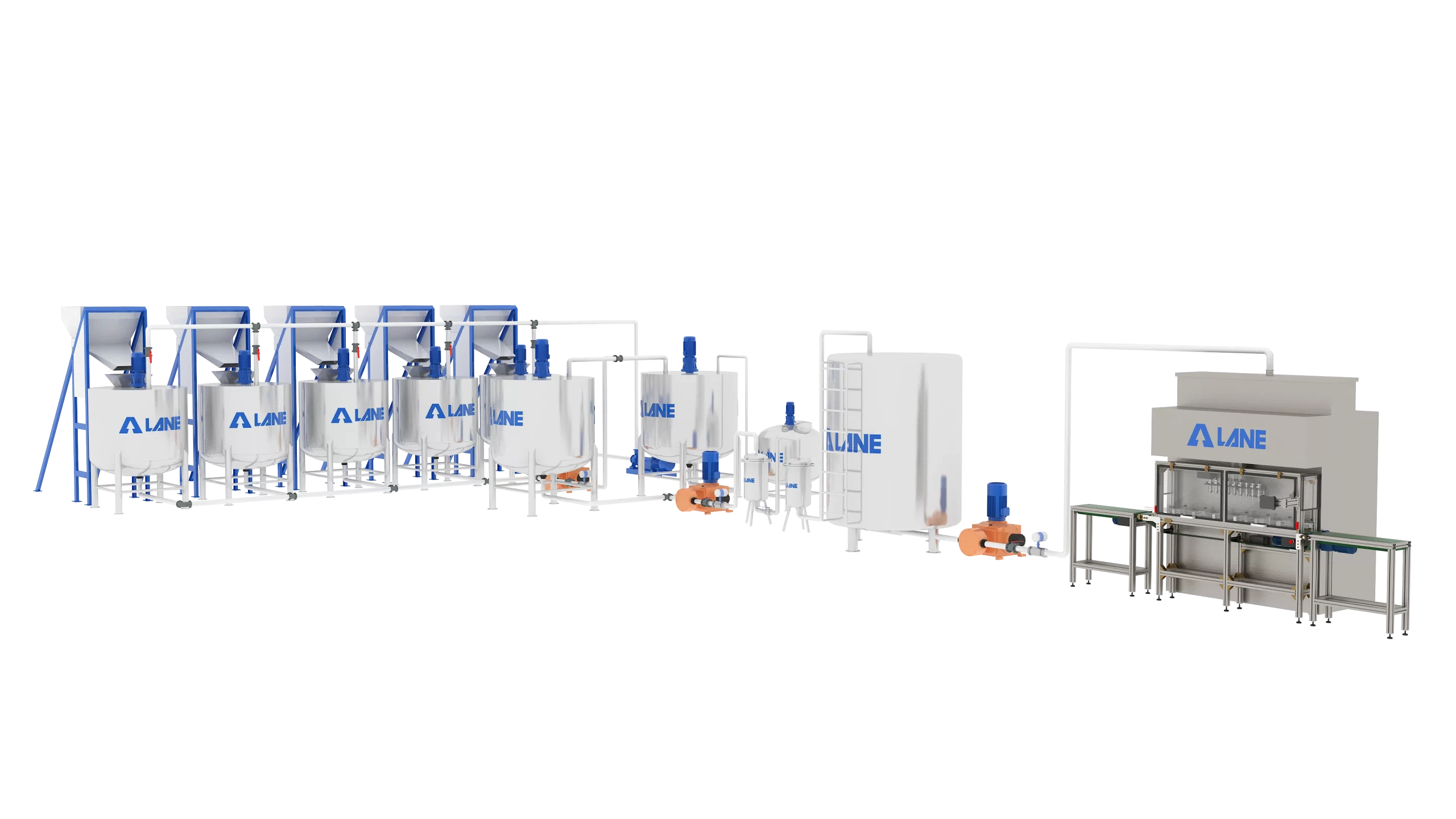
Driving Agricultural Efficiency with a Drip Irrigation Liquid Fertilizer Production Line
The technology of drip irrigation liquid fertilizer production line has become the cornerstone of modern agriculture, with efficiency, sustainability and precision being of utmost importance. Unlike the traditional fertilization methods that often lead to nutrient loss, the liquid fertilizers specially designed for drip irrigation systems can ensure that crops directly obtain nutrients in the root zone at the right time and place. To meet the growing demand, specialized production lines have been developed to manufacture liquid fertilizers in bulk, ensuring consistent quality, optimized formulations, and professional packaging for global markets.

The agricultural landscape is shifting rapidly. Water scarcity, rising fertilizer costs, and the push toward sustainable farming practices have forced both smallholder farmers and large-scale producers to rethink their nutrient management strategies. In this context, a drip irrigation liquid fertilizer production line delivers multiple benefits:
Efficient nutrient delivery: Fertilizer applied via drip systems is absorbed more effectively by crops.
Cost reduction: Uniform application reduces waste, leading to savings for farmers.
Sustainability: Less runoff and leaching help protect soil and water resources.
Market opportunities: Professionally packaged fertilizers open doors for both domestic sales and international exports.
A modern drip irrigation liquid fertilizer production line typically includes several essential stages, each designed to ensure the quality and stability of the final product. Below is a simplified flow, similar to the one applied by LANE’s systems:
| Stage | Equipment | Function |
| Raw Material Handling | Feeding Hopper | Transfers raw materials into the system. |
| Initial Blending | Raw Material Mixing Tank | Ensures base nutrients are dissolved uniformly. |
| Homogenization | Mixing Tank | Maintains stability of the solution. |
| Additive Integration | Additive Mixing Tank | Incorporates micronutrients, growth enhancers, or stabilizers. |
| Filtration | Duplex Filter | Removes impurities to protect drip systems from clogging. |
| Storage | Storage Tank | Safely holds finished product before packaging. |
| Packaging | Automatic Filling Machine | Accurately fills containers (from small bottles to drums). |
| Final Output | Finished Product | Ready-to-use liquid fertilizer tailored for drip irrigation. |
A drip irrigation liquid fertilizer production line is not just a set of machines placed together; it is an engineered process designed for precision and efficiency. The following step-by-step workflow demonstrates how raw materials are transformed into a finished product ready for agricultural application:
(1) Raw Material Feeding (Feeding Hopper)
The process begins with the delivery of base materials—such as urea, potassium nitrate, phosphates, or organic extracts—into the feeding hopper. This stage ensures smooth and measured input into the system, preventing clumps and maintaining accurate proportions.
(2) Primary Blending (Raw Material Mixing Tank)
Once inside the raw material mixing tank, the base fertilizers are dissolved and stirred to form a uniform nutrient solution. Proper agitation prevents sedimentation and ensures each batch maintains consistent quality.
(3) Homogenization (Mixing Tank)
The mixing tank refines the solution further, ensuring all ingredients are evenly distributed. In this step, parameters such as pH and concentration can be adjusted to match specific crop requirements.
(4) Additive Integration (Additive Mixing Tank)
At this stage, microelements, trace nutrients, stabilizers, or even biological enhancers can be added via the additive mixing tank. This flexibility allows producers to create custom formulations for different crops, soil types, and climates.
(5) Filtration (Duplex Filter)
Before storage, the liquid passes through a duplex filter, which removes particles and impurities that could clog drip irrigation emitters. This step is critical for ensuring compatibility with irrigation systems and maintaining long-term reliability.
(6) Storage (Storage Tank)
The filtered solution is then pumped into a storage tank. Here, the fertilizer remains stable and protected until it is ready for packaging. Tanks are typically stainless steel to resist corrosion and ensure hygiene.
(7)Automatic Filling (Automatic Filling Machine)
The solution is precisely measured and filled into containers of different sizes—ranging from small bottles to large drums—using an automatic filling machine. This step ensures packaging accuracy, reduces spillage, and maintains consistency across all batches.

LANE has developed a reputation for delivering state-of-the-art drip irrigation liquid fertilizer production lines tailored to global markets. Here are the expanded advantages that make LANE stand out:
Customized Design for Local Needs: Each agricultural market is unique, and LANE is well aware of this reality. The company does not offer a one-size-fits-all solution; instead, it works closely with customers to design production lines that reflect local raw materials, climatic conditions, crop structure, and fertilization regulations. For instance, in areas where farmers heavily rely on high-potassium crops, we adjust the mixing tanks and measurement systems to handle higher concentrations of potassium-based fertilizers. This customized engineering design not only ensures the smooth operation of each production line but also produces fertilizer formulas that truly meet the needs of local farmers.
High-Quality Materials and Long-Term Reliability: Fertilizer production is a chemically intensive process, and the durability of equipment directly affects the stability of production output. LANE uses food-grade stainless steel that is resistant to corrosion and chemical erosion to manufacture storage tanks, filters, and pipelines. This means fewer malfunctions, lower maintenance costs, and consistent product quality throughout many years of operation. Additionally, LANE places great emphasis on precise sealing and advanced filtration technology to ensure that every drop of fertilizer can be safely used in the drip irrigation system, preventing blockages and guaranteeing efficient nutrient delivery to crops.
Advanced Automation with Cost Efficiency: Automation is not merely about reducing labor; it lies in ensuring accuracy, repeatability, and cost control. LANE integrates a PLC-based control system, enabling operators to monitor, adjust, and optimize the entire process from raw material input to automatic filling through a central panel. This not only minimizes human errors but also reduces production costs by optimizing energy usage and material consumption. Ultimately, LANE has created a reliable, scalable, and future-oriented system that can produce stable fertilizer batches while reducing operating costs.
Comprehensive Global Support and Expertise: In addition to delivering mechanical equipment, LANE also provides end-to-end support: installation, operator training, maintenance guidance, and even fertilizer formula consultation. With the accumulated experience in multiple continents such as Asia, Africa, and Latin America, the LANE team is well-versed in the challenges brought by different agricultural environments. Whether the producer is establishing a new facility in a tropical climate region or upgrading an existing factory in a drought area, LANE can apply its expertise to ensure success. This high-level technical support and practical experience ensure that customers not only purchase equipment but also invest in a long-term partnership.
Indonesia – Boosting Rice Production with Local Fertilizer Plants
In Central Java, Indonesia, a cooperative established a drip irrigation liquid fertilizer production line with LANE’s guidance. The system allowed the cooperative to produce nutrient solutions locally, reducing reliance on imported products. Within the first year, rice yields improved by 18%, and the cooperative created new income streams by selling excess fertilizer to neighboring regions.
Africa – Supporting Horticultural Growth
In East Africa, a vegetable farming group adopted LANE’s system to produce liquid fertilizers enriched with micronutrients. By packaging fertilizers in 5-liter containers using an automatic filling machine, the group provided smallholder farmers with affordable and easy-to-apply products. The project not only boosted productivity but also created job opportunities within the local community.
These cases highlight how a drip irrigation liquid fertilizer production line can address different agricultural needs—whether increasing staple crop yields or supporting horticultural exports.
Q1: Can the production line handle different formulations?
Yes, LANE’s systems are flexible enough to produce nitrogen-based, phosphate-based, or micronutrient-enriched fertilizers, as well as organic blends.
Q2: What about clogging issues in drip irrigation systems?
The inclusion of duplex filters and precise formulation ensures fertilizers are fully soluble and safe for drip systems.
Q3: How scalable is the system?
LANE provides modular solutions—from compact production lines for cooperatives to large-scale facilities producing thousands of liters daily.
Q4: How does automation benefit producers?
Automated filling and mixing reduce labor, minimize errors, and ensure consistency across batches—essential for export-grade fertilizer.
The global fertilizer industry is moving towards precision agriculture. Due to its advantages of efficiency and environmental friendliness, farmers are increasingly favoring liquid fertilizers that are compatible with irrigation and drip irrigation. With the tightening of global regulations, ensuring the consistency and traceability of products will become even more important.
Therefore, investment in a drip irrigation liquid fertilizer production line is not only a business opportunity but also a sustainable development initiative. Producers can meet local demands while also meeting global quality standards.

The drip irrigation liquid fertilizer production line is more than just a set of machines—it is a vital tool for modern agriculture. By enabling precise nutrient formulation, professional packaging, and scalable production, it helps farmers and agribusinesses improve productivity while reducing costs and environmental impact.
LANE’s expertise, high-quality equipment, and long-term customer support make it a trusted partner in building reliable fertilizer production systems worldwide. Whether in Asia, Africa, or Latin America, LANE has demonstrated that efficient fertilizer production can directly translate into stronger harvests, healthier soils, and sustainable growth.
For more details, please feel free to contact us.
Henan Lane Heavy Industry Machinery Technology Co., Ltd.
Email: sales@lanesvc.com
Contact number: +86 13526470520
Whatsapp: +86 13526470520
Leave a Comment
LANE has more than 500 successful cases and is committed to providing customers with first-class solutions, high-end machinery and equipment, and one-stop pre-sales, sales and after-sales comprehensive customer service.